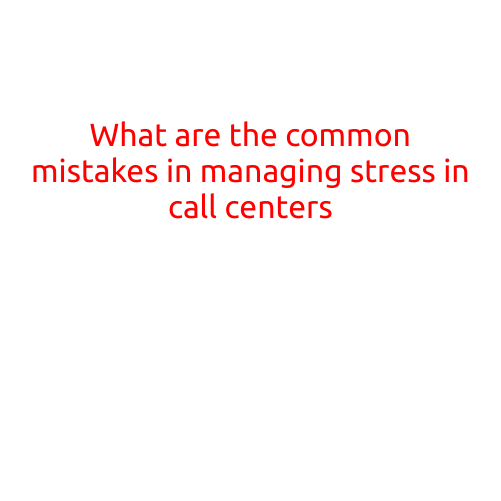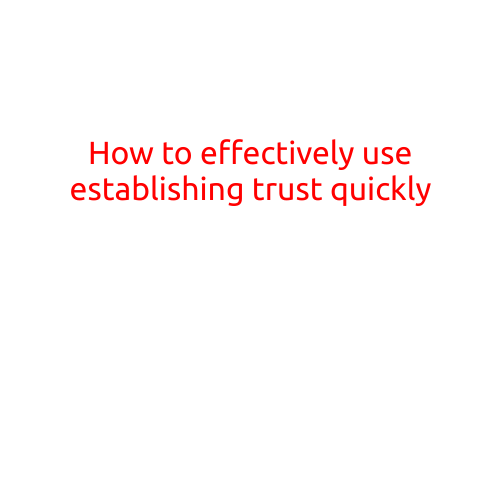
What are the Common Mistakes in Managing Stress in Call Centers?
As the world becomes increasingly digital, the importance of call centers in providing customer service and support cannot be overstated. While call centers play a vital role in ensuring seamless customer experiences, managing stress in these environments is crucial for agent well-being and performance. Unfortunately, many call centers often overlook or mismanage stress, leading to negative consequences for both employees and customers. In this article, we will explore the common mistakes in managing stress in call centers and provide actionable tips to mitigate these errors.
Mistake #1: Ignoring Agent Well-being
Call center management often prioritizes efficiency and productivity over agent well-being. Agents are bombarded with an endless stream of calls, emails, and chats, which can lead to burnout, fatigue, and decreased job satisfaction. Ignoring agent well-being can result in increased turnover, decreased morale, and compromised customer service.
Solution: Implement regular stress-reduction initiatives, such as meditation sessions, yoga classes, or counseling services. Encourage agents to take regular breaks, offer flexible scheduling, and provide opportunities for growth and development.
Mistake #2: Fostering a High-Stress Work Environment
Call centers often operate in a fast-paced, high-pressure environment, which can create a toxic atmosphere leading to stress, anxiety, and errors. Unnecessary pressure to meet tight deadlines, high-volume call handling, or micromanaging can exacerbate the issue.
Solution: Create a supportive work environment by fostering open communication, encouraging teamwork, and promoting a culture of empathy and understanding. Set realistic targets, provide autonomy, and recognize and reward agents for their achievements.
Mistake #3: Inadequate Training
Insufficient training can lead to agent frustration, stress, and poor performance. Without adequate training, agents may feel overwhelmed and anxious, leading to decreased job satisfaction and increased turnover.
Solution: Provide comprehensive training programs that include role-playing, scenario-based exercises, and coaching. Offer ongoing training and support to ensure agents have the necessary skills to perform their job effectively.
Mistake #4: Insufficient Job Autonomy
Micro-managing and lack of job autonomy can lead to increased stress and decreased job satisfaction. Agents feel micromanaged when they are constantly monitored, lacks the freedom to make decisions, or is subject to unnecessary restrictions.
Solution: Provide agents with the autonomy to make decisions, take ownership of their work, and recognize their value in the organization. Offer flexible scheduling, flexible work arrangements, and empower agents to take breaks when needed.
Mistake #5: Inadequate Resources
Adequate resources, such as necessary software, equipment, and staffing, are essential for effective call center operation. Inadequate resources can lead to increased stress, frustration, and decreased job satisfaction.
Solution: Ensure agents have access to necessary resources, including technology, training, and support. Monitor resource levels and adjust as needed to ensure agents have what they need to perform their job effectively.
Mistake #6: Unnecessary Overlapping Responsibilities
Overlapping responsibilities and conflicting goals can lead to increased stress, confusion, and decreased job satisfaction.
Solution: Clarify roles and responsibilities, establish clear goals, and ensure agents understand their scope of work. Encourage communication and collaboration among team members and provide resources to support workload management.
Mistake #7: Poor Leadership
Poor leadership skills, such as lack of effective communication, unrealistic expectations, and inadequate support, can lead to increased stress and decreased job satisfaction.
Solution: Develop leaders who can effectively communicate, set realistic targets, and provide support and guidance. Encourage leadership to prioritize agent well-being, recognize achievements, and empower agents to take ownership of their work.
Conclusion
Managing stress in call centers requires a holistic approach that prioritizes agent well-being, creates a supportive work environment, and provides necessary resources and training. By recognizing and addressing the common mistakes outlined in this article, call center management can mitigate the negative consequences of stress, leading to improved agent morale, performance, and customer satisfaction. Remember, prioritizing agent well-being is crucial for delivering exceptional customer service and driving business success.





